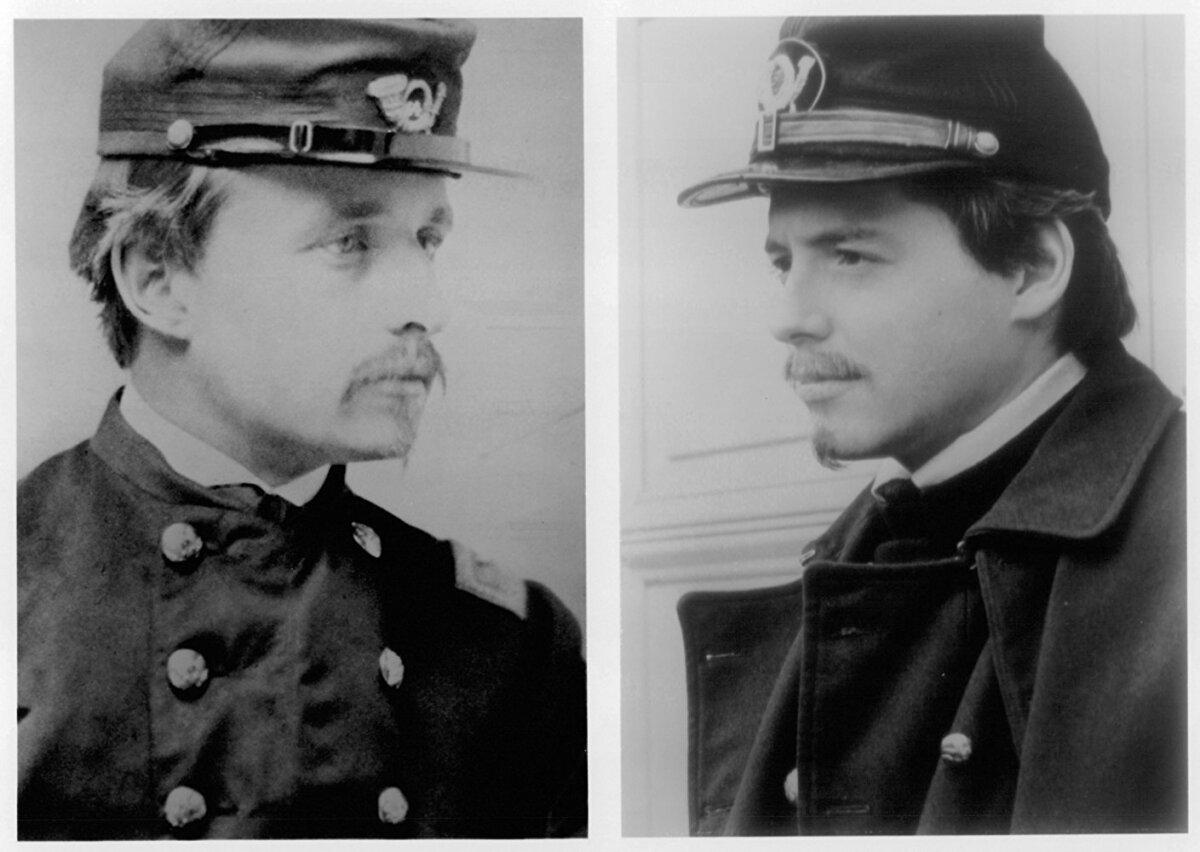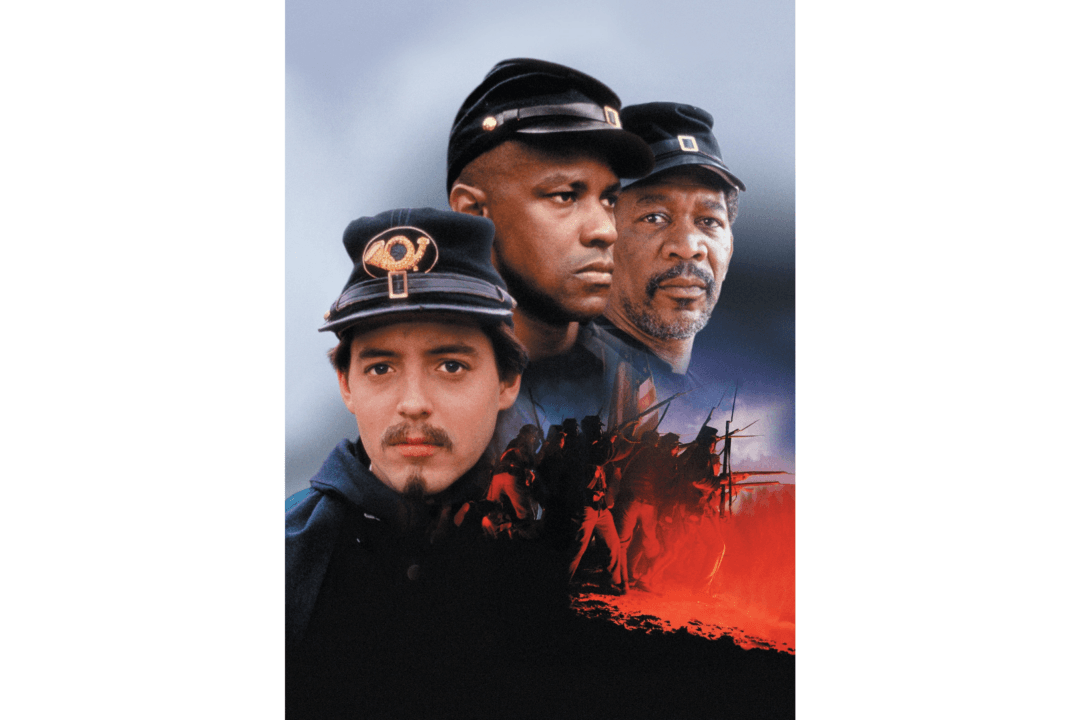Director Edward Zwick’s film fictionalizes the fate of the first largely black 54th Massachusetts Infantry Regiment, commanded by Col. Robert Gould Shaw, son of influential Boston abolitionists. President Abraham Lincoln went on to recognize how indispensable this 19th-century regiment was to the victory of the United States and to the dismantling of slavery. Check the Internet Movie Database website (imdb.com) for plot summary, cast, reviews, and ratings; a review is also on The Epoch Times website.

Robert Gould Shaw (L) and Matthew Broderick, who plays the colonel in “Glory.” MovieStillsDB





